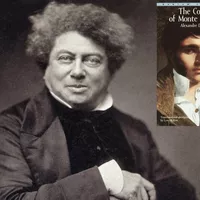Chapter 13. The Hundred Days (3)
"That is true. Only think what the poor fellow may even now be suffering." Villefort shuddered at the suggestion; but he had gone too far to draw back. Dantes must be crushed to gratify Villefort's ambition. Villefort dictated a petition, in which, from an excellent intention, no doubt, Dantes' patriotic services were exaggerated, and he was made out one of the most active agents of Napoleon's return. It was evident that at the sight of this document the minister would instantly release him. The petition finished, Villefort read it aloud.
"That will do," said he; "leave the rest to me." "Will the petition go soon?" "To-day." "Countersigned by you?" "The best thing I can do will be to certify the truth of the contents of your petition." And, sitting down, Villefort wrote the certificate at the bottom.
"What more is to be done?" "I will do whatever is necessary." This assurance delighted Morrel, who took leave of Villefort, and hastened to announce to old Dantes that he would soon see his son.
As for Villefort, instead of sending to Paris, he carefully preserved the petition that so fearfully compromised Dantes, in the hopes of an event that seemed not unlikely,--that is, a second restoration. Dantes remained a prisoner, and heard not the noise of the fall of Louis XVIII. 's throne, or the still more tragic destruction of the empire. Twice during the Hundred Days had Morrel renewed his demand, and twice had Villefort soothed him with promises. At last there was Waterloo, and Morrel came no more; he had done all that was in his power, and any fresh attempt would only compromise himself uselessly.
Louis XVIII. remounted the throne; Villefort, to whom Marseilles had become filled with remorseful memories, sought and obtained the situation of king's procureur at Toulouse, and a fortnight afterwards he married Mademoiselle de Saint-Meran, whose father now stood higher at court than ever. And so Dantes, after the Hundred Days and after Waterloo, remained in his dungeon, forgotten of earth and heaven. Danglars comprehended the full extent of the wretched fate that overwhelmed Dantes; and, when Napoleon returned to France, he, after the manner of mediocre minds, termed the coincidence, "a decree of Providence." But when Napoleon returned to Paris, Danglars' heart failed him, and he lived in constant fear of Dantes' return on a mission of vengeance. He therefore informed M. Morrel of his wish to quit the sea, and obtained a recommendation from him to a Spanish merchant, into whose service he entered at the end of March, that is, ten or twelve days after Napoleon's return. He then left for Madrid, and was no more heard of.
Fernand understood nothing except that Dantes was absent. What had become of him he cared not to inquire. Only, during the respite the absence of his rival afforded him, he reflected, partly on the means of deceiving Mercedes as to the cause of his absence, partly on plans of emigration and abduction, as from time to time he sat sad and motionless on the summit of Cape Pharo, at the spot from whence Marseilles and the Catalans are visible, watching for the apparition of a young and handsome man, who was for him also the messenger of vengeance. Fernand's mind was made up; he would shoot Dantes, and then kill himself. But Fernand was mistaken; a man of his disposition never kills himself, for he constantly hopes.
During this time the empire made its last conscription, and every man in France capable of bearing arms rushed to obey the summons of the emperor. Fernand departed with the rest, bearing with him the terrible thought that while he was away, his rival would perhaps return and marry Mercedes. Had Fernand really meant to kill himself, he would have done so when he parted from Mercedes. His devotion, and the compassion he showed for her misfortunes, produced the effect they always produce on noble minds--Mercedes had always had a sincere regard for Fernand, and this was now strengthened by gratitude.
"My brother," said she as she placed his knapsack on his shoulders, "be careful of yourself, for if you are killed, I shall be alone in the world." These words carried a ray of hope into Fernand's heart. Should Dantes not return, Mercedes might one day be his.
Mercedes was left alone face to face with the vast plain that had never seemed so barren, and the sea that had never seemed so vast. Bathed in tears she wandered about the Catalan village. Sometimes she stood mute and motionless as a statue, looking towards Marseilles, at other times gazing on the sea, and debating as to whether it were not better to cast herself into the abyss of the ocean, and thus end her woes. It was not want of courage that prevented her putting this resolution into execution; but her religious feelings came to her aid and saved her. Caderousse was, like Fernand, enrolled in the army, but, being married and eight years older, he was merely sent to the frontier. Old Dantes, who was only sustained by hope, lost all hope at Napoleon's downfall. Five months after he had been separated from his son, and almost at the hour of his arrest, he breathed his last in Mercedes' arms. M. Morrel paid the expenses of his funeral, and a few small debts the poor old man had contracted.
There was more than benevolence in this action; there was courage; the south was aflame, and to assist, even on his death-bed, the father of so dangerous a Bonapartist as Dantes, was stigmatized as a crime.

